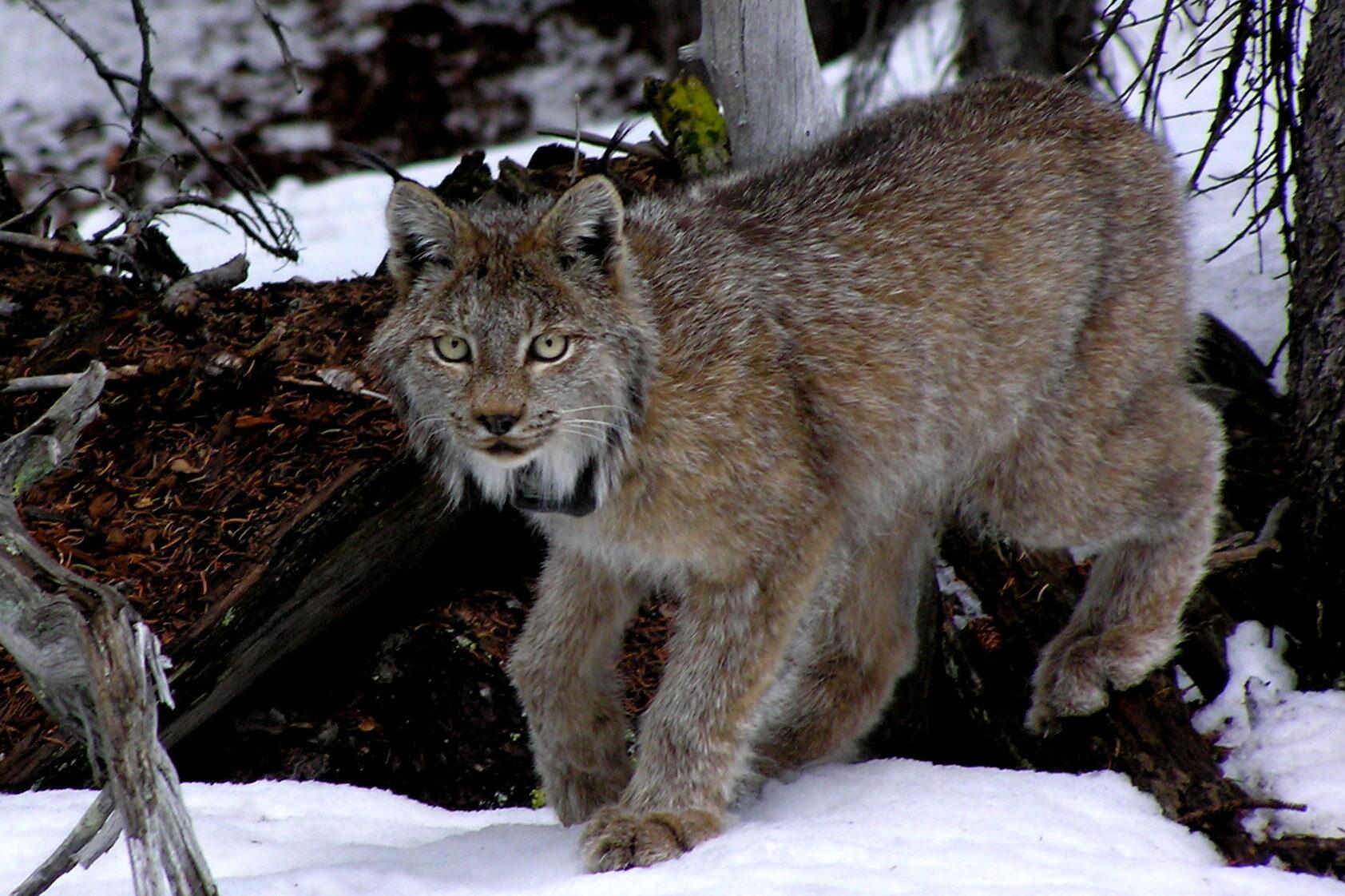
In 2020, voters approved the reintroduction of wolves into Colorado. Now residents will have another decision to make regarding large predators in the state: big cats.
Proposition 127 would ban the hunting and trapping of bobcats and mountain lions, practices which have been regulated in the state for generations.
Hunting lynx in Colorado is already illegal, since the federally threatened species was reintroduced to the state in 1999. The initiative would preemptively protect lynx should they lose that federally protected status.
Prop 127 also provides room for exceptions and lays out punishments for breaking the proposed law.
Voting yes for Prop 127 means you want to ban the hunting of bobcats, lynx and mountain lions. Voting no on the measure would allow the hunting of bobcats and mountain lions to continue as it is now, while lynx hunting would remain illegal under state and federal law.
Colorado Parks and Wildlife is the state department responsible for all wildlife management and regulates the legal taking of fish and game animals through hunting and fishing license sales.
As it stands, bobcats may be taken with a furbearer license between the months of December and February, with no limit on the number that can be killed. CPW says an average of 880 bobcats have been harvested per year over the past four years. The total population of the species in Colorado is unknown, but it’s considered widespread and stable.
For mountain lions, hunting is far more tightly controlled. The state’s population is considered stable at between 3,800 and 4,400 animals. To hunt mountain lions, hunters must possess a special mountain lion education certificate on top of the required standard hunter education card. It also requires buying an individual license from the state. Each animal taken also needs to be inspected by CPW, and all edible meat must be prepared for human consumption. Over the past four years, an average of 500 mountain lions were harvested per year.
Here’s the language you’ll see on your ballot:
Shall there be a change to the Colorado Revised Statutes concerning a prohibition on the hunting of mountain lions, lynx, and bobcats, and, in connection therewith, prohibiting the intentional killing, wounding, pursuing, entrapping, or discharging or releasing of a deadly weapon at a mountain lion, lynx, or bobcat; creating eight exceptions to this prohibition including for the protection of human life, property, and livestock; establishing a violation of this prohibition as a class 1 misdemeanor; and increasing fines and limiting wildlife license privileges for persons convicted of this crime?
How would Proposition 127 work?
If passed, those charged with the illegal killing of these wild cat species could spend up to 364 days in jail, receive a fine of $1000 or both. Those convicted would not be able to purchase new Colorado hunting or fishing licenses for five years. And the penalties would increase with subsequent convictions.
The initiative does continue to allow killing of the cats in limited circumstances. These include defending the lives of humans or livestock, accidentally hitting a cat with a vehicle and government workers acting in their official capacity.
Prop 127 would affect both revenue for CPW and money spent by the department.
The state expects CPW would lose $410,000 in revenue in the next year and $450,000 each following year. That’s due to the lost income from issuing mountain lion hunting licenses and the possible decrease in furbearer licenses sold if bobcats are removed from the animals on the legal furbearer list. However, the state could recoup some small amount of that money through fines and penalties if illegal hunting does occur.
Projects show the state would spend less money if the initiative passes. This is due to a potential decrease in so-called “game damage claims” paid out to livestock owners when their animals are killed or injured by mountain lions. (That’s expected to lower state expenditures by about $39,000 in the first year and then about $77,500 in the years after that.) If the measure passes, the big cats would no longer be “game” and livestock owners would not be paid for losses due to the reclassification of the animal. The group supporting Prop 127 is working with NGOs to provide interim funding to make sure livestock owners are reimbursed for mountain lion depredation while they work with the legislature on a long-term funding solution.
The new law would not change the process for livestock owners to ask CPW for help with problem animals.
CPW would likely spend more money on legal counsel — to the tune of about $57,000 in the first year and about $115,000 in the second year. Those fees will go toward the CO Department of Law to create the rules and regulations needed to comply with the guidelines laid out in Proposition 127. All told, CPW expenditures in the first two years would modestly increase, and then by the third year of the law expenditures would decrease.
According to projections, by the third year of the law CPW’s budget would be about $372,000 lower annually than it is today.
Who’s for Proposition 127?
The supporters of Proposition 127 are led by the Grand Lake-based Cats Aren’t Trophies campaign. After gathering the necessary signatures to get the measure on the ballot, the group has been aggressively campaigning in progressive circles around the state.
Cats Aren’t Trophies has garnered the support of prominent wildlife advocates and celebrities, ranging from U.S. Fish and Wildlife Service Director during the Obama Administration Dan Ashe to actor and environmentalist Robert Redford and celebrated naturalist Jane Goodall.
Supporters point to what they consider to be unsportsmanlike or unethical tactics used by big cat hunters, including the use of hunting dogs, bait and traps. They argue the killing of animals for their fur is an antiquated and unnecessary practice that can leave kittens without mothers and artificially disrupts the predators’ natural place in the ecosystem.
Who’s against Proposition 127?
The nonprofit Coloradans for Responsible Wildlife Management is leading the effort to defeat Proposition 127. The group describes the initiative as a threat to the American system of wildlife management and Colorado’s rich hunting tradition.
Opponents of Proposition 127 see the initiative as infringing on the rights of the state’s sportsmen and women as well as curtailing the ability of Colorado Parks and Wildlife to use the tool of legal harvest to manage predator populations. They also accuse Cats Aren’t Trophies of trying to deceive voters through the initiative’s language into thinking lynx are hunted in Colorado today.
Opponents argue decisions regarding wildlife management should not be left to the ballot and should instead be made by the biologists working at Colorado Parks and Wildlife. They say CPW has been successfully managing the populations of the state’s big cats for decades.
Editor's note: This entry has been updated with addition reporting on how the measure might affect livestock reimbursement.









